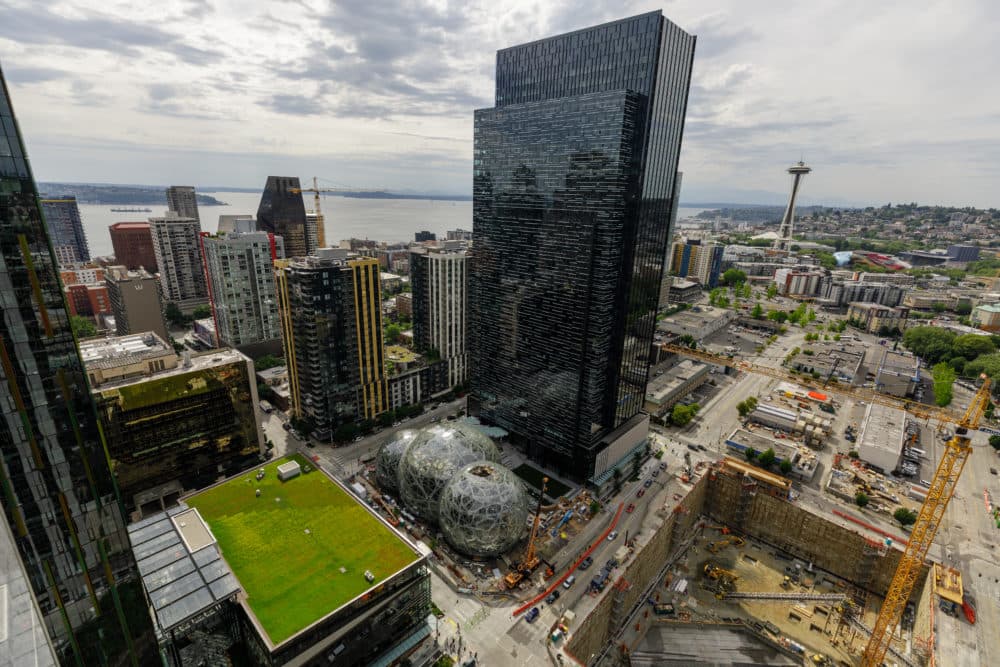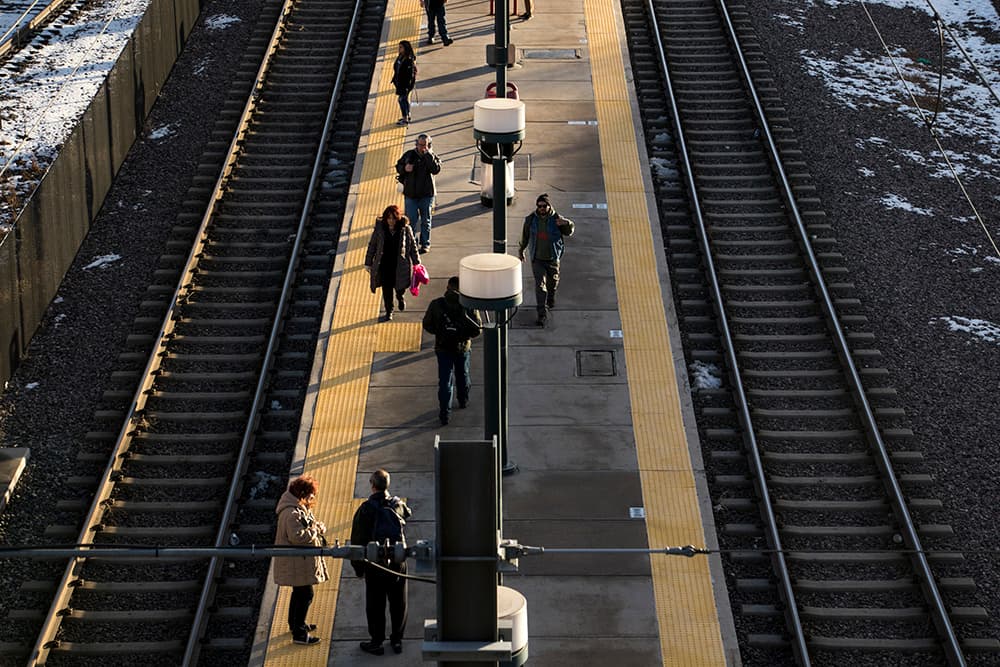
Amazon's second North American headquarters might not come bundled with the traffic doom some Denver area residents are worried about.
The former director of the Seattle Department of Transportation, Scott Kubly, said Amazon.com Inc. played a key role helping his rapidly growing city address congestion concerns. Denver or any of the other top 19 cities shortlisted for Amazon's HQ2 project would be lucky to get the e-commerce behemoth, Kubly said.
"I think having Amazon locate their headquarters in your city is about the best thing that could happen to a city at the end of the day," Kubly said. "It's a dynamic growth machine."
Amazon is the largest private employer in Seattle, with more than 40,000 employees at its downtown campus. The company includes 33 buildings across 8.1 million square feet. The HQ2 project is expected to drop "a full equal" of Amazon's current campus in Denver or one of the other cities the company is considering locating.
In Seattle, about 15 percent of Amazon employees live in the same zip code as their campus and about 20 percent walk to work, the company reports.
"What's interesting is for that area of downtown, Amazon has one of the better stories to tell in terms of the number of people that are commuting by single-occupant automobile. It's below the average for the city," Kubly said.
Amazon has a "huge impact" on how Seattle thinks about transportation services, Kubly said. The company agreed to pay for purchasing and funding operations of a streetcar in Seattle in 2012 and has invested in modernizing the city's traffic signal system.
"The neighborhood they're in is a real mixed-use neighborhood with a lot of residential as well as office, and they're building out really, really quality streetscapes and public realms. It's actually a really pleasant place to be," he said.
There's pressure for Amazon to help Seattle figure out how to get its thousands of employees around.
"They're reliant on the public transit system, but at the same time they have to build their own system as well," Kubly said. "They're growing so fast that the city and the county just cannot add service fast enough."
Amazon, like a lot of the other tech companies, offers transportation services that move folks around its campus including carpooling, ridesharing and a commuter bus system. Some in Denver want to import the company's innovation to Colorado to help push us forward on transportation and transit infrastructure.
The Colorado Department of Transportation said that the Denver metro area and Front Range are going to continue to grow and the addition of the Amazon headquarters would clearly impact that.
"We are very focused on how we address congestion and mobility needs which include all options such as expanded capacity, technology investment as well as creating opportunities for choice in how people travel such as transit," department spokeswoman Amy Ford said. "We are starting studies, for instance, to plan for a growth future such as the Central I-25 Planning and Environmental Linkage Study, which looks at transportation improvements in the Denver core."
The study kicked off in 2017 and is expected to be completed in the months ahead.
The vice president of economic development for Metro Denver Economic Development Corp., Sam Bailey, said it's important to remember all 50,000 of Amazon's potential employees would not show up in Colorado at once and that the state is promoting options to get people to work other than parking.
"Our focus is for this not to be some mega-campus with 50,000 parking spots. It's really to be a fully-community integrated location that distributes its density so that there's minimal impact on quality life around congestion," Bailey said. "We know we need to make investments in transportation and infrastructure whether or not Amazon comes here."

Denver could learn from Seattle. Kubly served as the head of Seattle's transportation department from 2014 until January 2018. During his tenure, thousands of people moved to the city, making Seattle the 18th largest city in the U.S. with 704,352 residents. Denver, for comparison, comes in at No. 19 with 693,060 residents.
Seattle succeeded in having most new residents walk, bike or take transit to get around.
"What you're seeing in Seattle is totally unique and a real model for the rest of the country in that over the last six years our downtown added 45,000 new jobs so it grew by almost 25 percent and the number of people driving into downtown to commute to work only went up by 2,000 people," Kubly said.
Seattle reports success dropping the number of drivers riding alone to 34.1 percent in 2016 through its Commute Trip Reduction Program. The city is also growing the number of people using transit and walking or biking with 95.8 million transit trips completed and in 2016, according to its 2017 Performance Report.

Most (73 percent) of Denver commuters drive alone. The city's goal is to reduce single-occupant vehicle commuters to 50 percent and increase the percentage of bike and pedestrian commuters to 15 percent and transit
commuters to 15 percent by 2030, according to Denver’s Mobility Action Plan released in July.
Kubly is coming to Denver on Feb. 13 to discuss his role transforming Seattle into an urban model of multimodal transportation and the value of moving quickly to complete projects.
"I am going to talk about how we dealt with transportation historically and more recently," Kubly said. "We passed three transportation funding initiatives. The first one was funding transit service, and we increased transit service by 15 percent to the city. And then we passed a $930 million capital project levy within the city. And then the region passed a $54 billion transit capital measure that will build out a regional light rail system.
The Denver-based nonprofit Bicycle Colorado selected Kubly to be the keynote speaker for the second annual Moving People Forward conference in Denver. The event brings together thought leaders, decision-makers, business executives to discuss mobility trends, topics and technology.
Want more Denver news? Subscribe to Denverite’s newsletter here bit.ly/DailyDenverite.
Business & data reporter Adrian D. Garcia can be reached via email at [email protected] or twitter.com/adriandgarcia.












